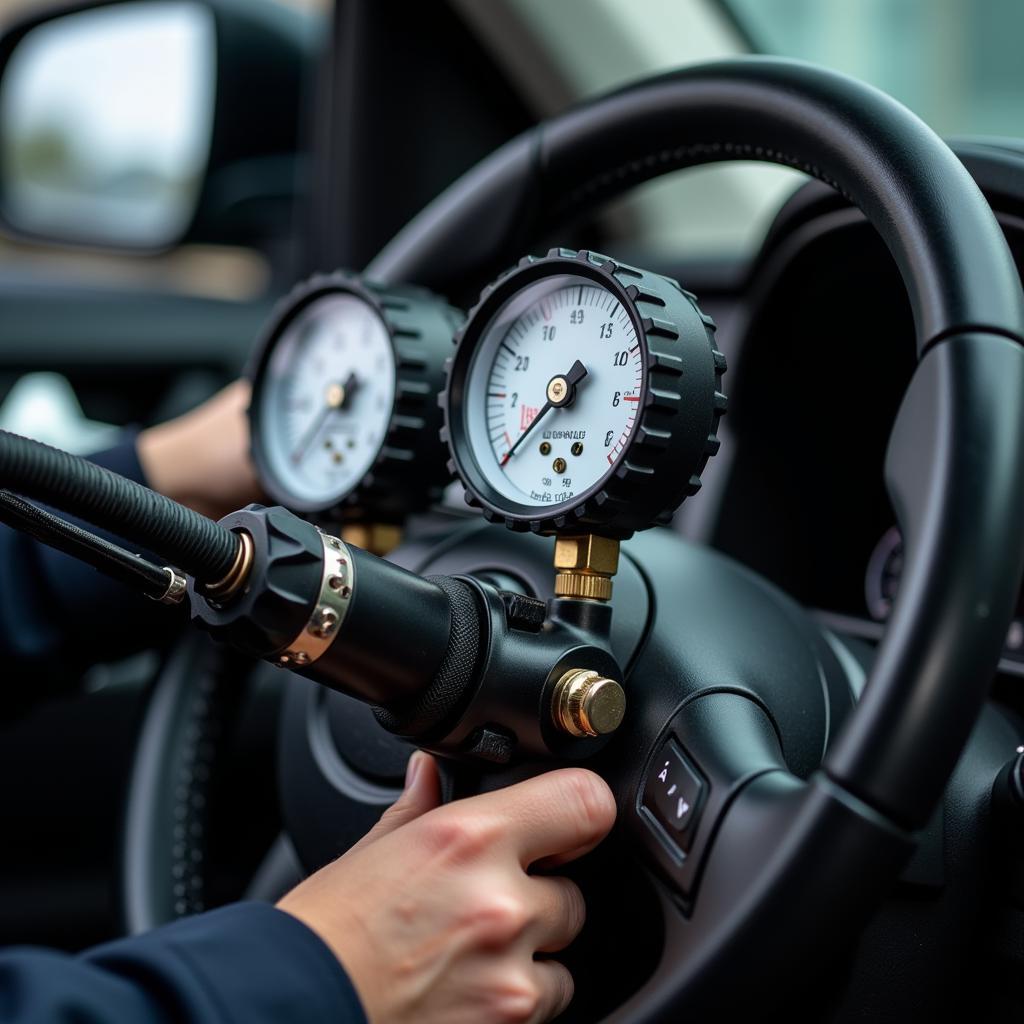The Ultimate Car Full Service List: What to Expect and Why It Matters
When it comes to car maintenance, a “car full service” might seem self-explanatory, but it can encompass a comprehensive range of checks and procedures. Understanding exactly what’s included in a car full service is crucial for keeping your vehicle running smoothly and safely. This guide provides a detailed breakdown of what a car full service typically entails, why it’s essential, and factors influencing the cost.
What is a Car Full Service?
A car full service is a thorough inspection and maintenance procedure that goes beyond a basic oil change. It’s designed to identify and address potential issues before they escalate into costly repairs. While the specific checks may vary slightly between garages, a full car service generally includes:
Engine and Components Check
- Oil and filter change: This is the cornerstone of any service, ensuring proper lubrication and engine performance.
- Coolant levels: Maintaining optimal coolant levels prevents overheating and potential engine damage.
- Air filter inspection and replacement (if needed): A clean air filter improves fuel efficiency and engine performance.
- Spark plugs examination (and replacement if necessary): Worn spark plugs can lead to misfires and reduced fuel economy.
Brakes, Suspension, and Steering Inspection
- Brake fluid level check and top-up (if required): Ensures optimal braking performance and safety.
- Visual inspection of brake pads and discs: Worn brakes are a major safety hazard and should be addressed promptly.
- Suspension check for wear and tear: A well-maintained suspension system ensures a comfortable and controlled ride.
- Steering components check: This includes examining the power steering fluid and checking for leaks or damage.
Lights and Electrical System Assessment
- Testing all exterior lights (headlights, taillights, indicators): Crucial for road safety and legal compliance.
- Battery condition check: A weak battery can lead to starting problems and other electrical issues.
- Charging system inspection: Ensures the battery is being charged correctly.
Tires and Exhaust System
- Tire pressure check and adjustment: Proper tire pressure improves fuel efficiency and extends tire life.
- Tire tread depth examination: Worn tires compromise grip and handling, especially in wet conditions.
- Visual inspection of the exhaust system: Checks for leaks, rust, and damage that could impact performance or safety.
Why is a Car Full Service Important?
Regular car full services offer numerous benefits:
- Enhanced Safety: Thorough inspections identify potential safety hazards, such as worn brakes or faulty lights.
- Improved Performance: Maintaining engine components, fluid levels, and tire pressure optimizes performance and fuel efficiency.
- Prolonged Vehicle Lifespan: Addressing minor issues early can prevent them from developing into major problems, extending the life of your car.
- Cost Savings: Regular maintenance can prevent expensive repairs down the line.
- Higher Resale Value: A well-maintained vehicle with a comprehensive service history commands a higher resale price.
Factors Influencing Car Full Service Costs
The price of a car full service can vary depending on:
- Vehicle Make and Model: Luxury or high-performance cars often require specialized parts and expertise, leading to higher service costs.
- Garage Location and Reputation: Urban areas and reputable garages may charge higher labor rates.
- Service Inclusions: Some garages offer different tiers of full service, with varying levels of comprehensiveness.
- Additional Repairs: If the service uncovers any necessary repairs, these will incur additional costs.
Car Full Service Schedule
Most manufacturers recommend a full service annually or every 12,000 miles, whichever comes first. However, it’s always best to consult your vehicle’s owner’s manual for specific service interval recommendations.
FAQs about Car Full Service
Q: How long does a car full service take?
A: Typically, a car full service takes around 3-4 hours. However, the duration can vary depending on the age and condition of the car and if any additional repairs are required.
Q: Do I need to go to a dealership for a full car service?
A: While dealerships can perform full services, independent garages are often a more cost-effective option. Choose a reputable garage with qualified mechanics.
Q: Can I do a car full service myself?
A: While some maintenance tasks, like checking fluid levels, can be done at home, a full service requires specialized tools and expertise. It’s generally recommended to have it done by a professional.
Conclusion
A car full service is an essential investment in your vehicle’s safety, performance, and longevity. By understanding what’s included and the benefits it offers, you can make informed decisions about maintaining your car and ensuring a smooth and enjoyable driving experience. For those seeking specific car service options in Dublin or wanting to explore car seat recovering services, more information is available on our website.

